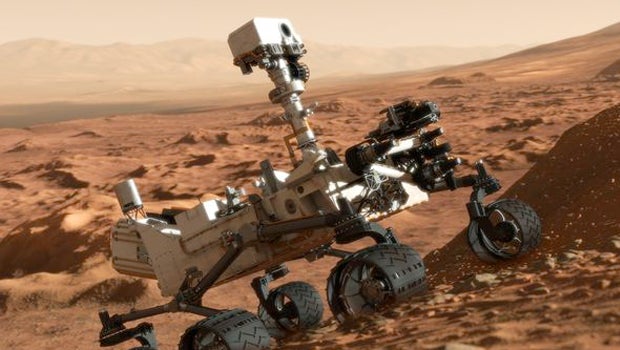Curiosity Rover detects ‘methane spikes’ that hint at Life on Mars

NASA’s Curiosity rover has recorded significant spikes in methane levels on Mars, which could strengthen the possibility of life existing on the planet.
According to findings published in the journal Science, methane readings far exceed background levels and are ten times higher than those obtained during previous spikes.
Scientists haven’t yet identified the source of the gas but, alongside other theories, NASA is exploring the possibility the the spikes could indicate the presence of bacteria-like organisms, either now or in the past.
“Strictly speaking, our observations are evidence for methane production on Mars, and in themselves cannot directly provide evidence of microbial life,” Dr Chris Webster, of NASA’s Jet Propulsion Laboratory said.
“However, from our positive detection of methane on Mars, we cannot rule out the possibility that both the low background level and the high methane values originate in part from microbial activity (methanogenesis).
“Our observations indicate that either the source shut off or the wind field at the source location changed to direct the emission away from us. At this time, we have no idea what we will see in the future, or if we will ever see high values again.”
The space agency is also considering a theory that the source of the methane could be from trapped gas that periodically makes its way through cracks in the rocks on the Red Planet’s surface.
University of Michigan professor and Curiosity scientist Sushil Atreya told the BBC: “These are molecular cages of water-ice in which methane gas is trapped. From time to time, these could be destabilised, perhaps by some mechanical or thermal stress, and the methane gas would be released to find its way up through cracks or fissures in the rock to enter the atmosphere.”
This theory doesn’t rule out the possibility of life once existing on the planet. Contrarily, the stored methane may have arisen from bacterial lifeforms that had previously existed and then decomposed on Mars.
Read more: Elon Musk’s 5 craziest ideas
Via: Sky News


